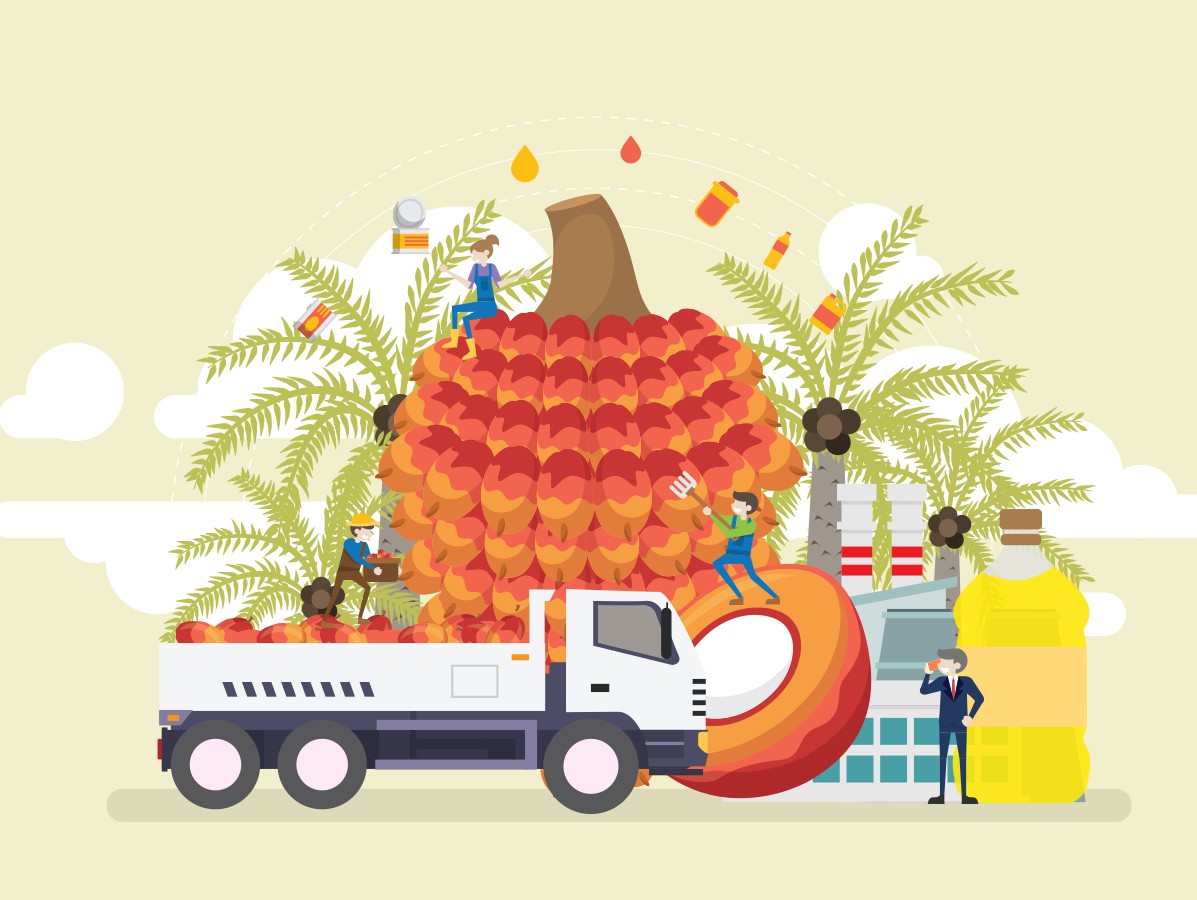
The Netherlands is on the right track in the use of sustainable palm oil. The final target (100% sustainable by 2020) is in sight. This is evident from the report of the Dutch Alliance for Sustainable Palm Oil (DASPO). In 2018, 89% of the palm oil processed in the Netherlands for food for the domestic and export markets was sustainable. The share of physically separated sustainable palm oil rose by 4% compared to 2017. In the animal feed industry, 12% more sustainable palm oil was processed than in the previous year. For the Dutch market, the companies affiliated to the DASPO member organisations processed 100% sustainable palm oil for both food and animal feed.
The DASPO reports annually on the use of sustainable palm oil in the food and feed industry. Sustainable palm oil is important because it contributes to the solution of issues such as the world food supply, the protection of biodiversity and the socio-economic development of small farmers. Frans Claassen, director of MVO - the chain organization for oils and fats, and initiator of the DASPO: "It is positive that in 2018 we will be using 4% more physically separated sustainable palm oil in food, and that 12% more sustainable palm oil will be processed in the animal feed industry. The share of sustainable palm oil in food shows only a very limited increase in 2018 (+1%). But we should not forget that this figure concerns both the domestic market and exports. In the Netherlands, we have been at 100% sustainable in both food and animal feed for a number of years now".
Transparency in the palm oil sector has improved considerably in recent years. All palm oil entering the Netherlands can be traced back to the palm oil mill in the country of origin. All this palm oil meets the so-called NDPE requirements, which means that it can be traced back to the palm oil mill in the country of origin:
1. no deforestation has taken place;
2. it has not been grown on peatland;
3. labour and human rights have been respected.
Claassen: 'Transparency is very important. The industry has made an enormous effort to achieve this. The problems with palm oil can only be tackled jointly and on a global scale. We are getting more and more support from NGOs and scientists who make it clear that boycotting palm oil will not solve the problems. The best alternative to palm oil is and remains sustainable palm oil".
The Dutch government also recognises the importance of sustainable palm oil. Marjolijn Sonnema, Director-General of Agro and Nature at the Ministry of Agriculture, Nature and Food Quality: "The palm fruit is an integral part of global food production. A sustainable production of palm oil is of great importance. It is good to see what steps the palm oil industry has already taken. I support and embrace them. At the same time, it is important to keep looking for opportunities for improvement, which is why I encourage companies to look ambitiously at their own sustainability standards".
Source: © DASPO